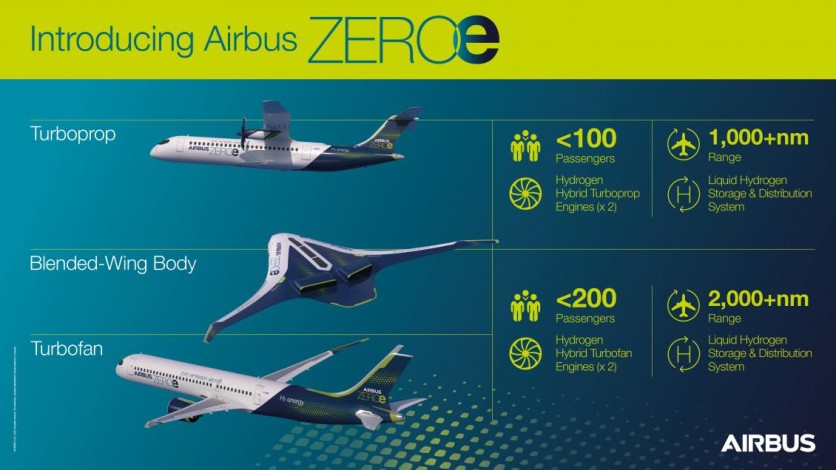Multinational aerospace firm Airbus debuted plans to advance next-generation hydrogen aircraft technologies through its newly built United Kingdom-based facility. Located in Filton, Bristol, the so-called Zero Emission Development Centre has already begun its main focus on expanding the company's existing alternative-propulsion systems through the research of cryogenic fuel and the design of hydrogen plane engines.
Airbus announced the new details on Wednesday, May 25, in a blog post, which paints of main interest for the company in its forthcoming ZEROe passenger aircraft, set to debut by 2035. The firm's ZEROe aircraft will utilize a "cost-competitive cryogenic fuel system," and is at the heart of the company's efforts to build out a total of three main zero-emission "hybrid-hydrogen" commercial aircraft utilizing the ZEROe concept, plans of which were first established in 2020.

"Establishing the ZEDC in the UK expands Airbus' in-house industrial capabilities to design, develop, test and manufacture cryogenic hydrogen storage tanks and related systems for the ZEROe project across Airbus' four home countries," explains the firm's Chief Technical Officer, Sabine Klauke, in Wednesday's blog post. "This, coupled with our partnership with ATI, will allow us to leverage our respective expertise to realise the potential of hydrogen technology to support the decarbonisation of the aviation industry."
Liquid hydrogen planes have been a technological concept since the Cold War, wherein both the USSR and the US attempted such designs. It has interesting historical significance in the face of aviation and the bounds by which aircraft tech has evolved, but some remain rather skeptical about its overall viability. One such individual is easyJet's director of flight operations, Captain David Morgan, who sees the future hydrogen fleet shift itself as most problematic.
"There are some really interesting designs, futuristic designs, that would lend themselves to hydrogen. However, what you don't want to do when you change over to a hydrogen fleet is to make everything so radical that the changeover becomes a real problem," said Morgan.
While Airbus remains quite adamant in its plans for ZEROe, others are being challenged, like the aviation giant KLM, which recently came under fire via various environmental groups for the company's so-called "greenwashing." The aviation industry is arguably among the most devastating in terms of its greenhouse gas emissions, with the World Wildlife Fund citing commercial flights as being "the most carbon intensive activity an individual can make," which has led many such companies to earmark the posited carbon emissions presented in their offered air travel.
Thus Airbus sees its zero-emissions efforts as imperative not just for its own business but for the entirety of the industry. Its UK facility will be the fourth in a line of ZEDCs, alternatives of which are located in France, Spain, and Germany. Airbus expects each of its global ZEDCs "to be fully operational and ready for ground testing with the first fully functional cryogenic hydrogen tank during 2023." It adds that in-air flight tests will begin in 2026.
Additionally, hydrogen plane designs and cryogenic fuel capabilities aren't the only ways the company is combating greenhouse gas emissions. Laid out via its entire zero emissions plans, Airbus will leverage electric aircraft, solar-powered flight, and urban air mobility technologies to forward sustainable travel conditions going into the future.
ⓒ 2025 TECHTIMES.com All rights reserved. Do not reproduce without permission.




